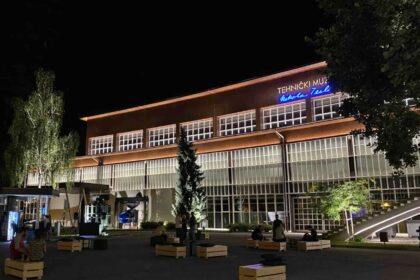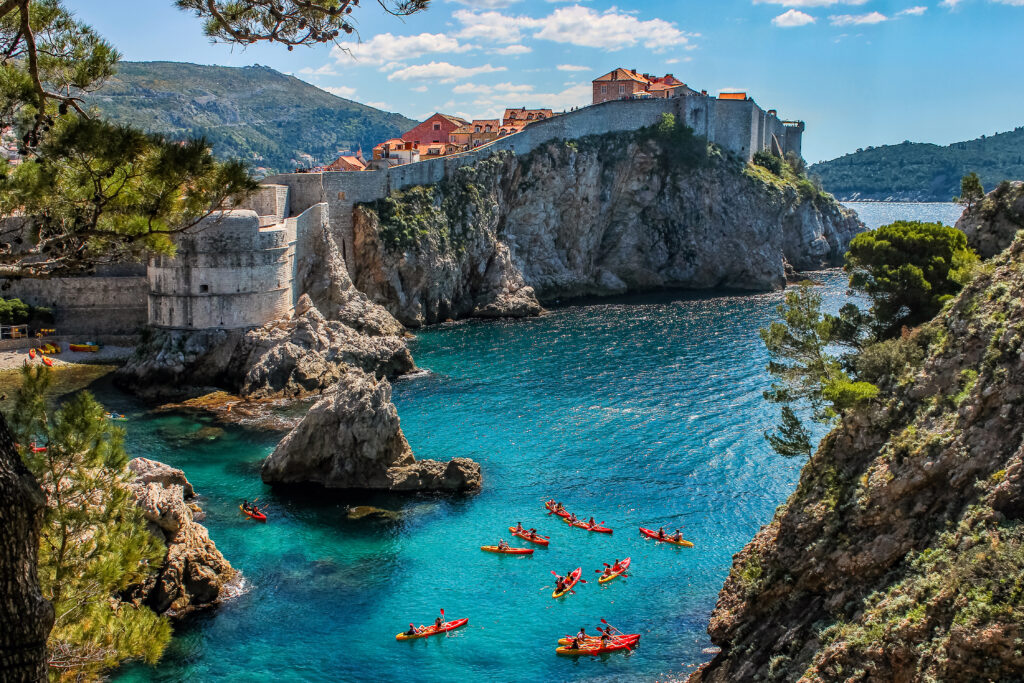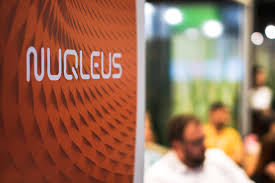
Croatia’s history is defined by resilience and adaptability, traits that naturally align with the entrepreneurial spirit. Originally part of the Roman Empire, Croatia grew through centuries of influence by various empires and regimes—from the medieval Croatian Kingdom to the Austro-Hungarian Empire, and later as part of Yugoslavia until its independence in 1991. This complex history has cultivated a society that values endurance and adaptability, valuable characteristics for entrepreneurs.
Since joining the EU in 2013, Croatia has enjoyed expanded trade, investment, and access to European innovation networks. Croatia’s strategic position—on the edge of Central Europe, the Balkans, and the Mediterranean—positions it as a bridge between regions, offering unique access and insight into these diverse markets.
The Croatian economy, once heavily reliant on tourism, has now diversified, with a renewed focus on innovation and technology. For startups and foreign investors, Croatia offers a unique combination of European integration with the resilience and ambition of an emerging market.
Article Highlights
- The Legacy of Nikola Tesla: A Cultural and Entrepreneurial Inspiration
- Croatia’s Role in Engineering, Renewable Energy, and Applied Technology
- Venture Capital, Government Initiatives, and the Startup Ecosystem
- A Work-Life Balance, Vibrant Culture, and Digital Nomad Appeal
- Working with Croatia: Building Relationships for Success
- Croatia’s Unique Value as an Innovation Hub
The Legacy of Nikola Tesla: A Cultural and Entrepreneurial Inspiration
Nikola Tesla, born in Smiljan, Croatia (then part of the Austro-Hungarian Empire), remains one of the most revered figures in Croatian history and culture. Tesla’s contributions to electricity, electromagnetism, and wireless communication technology were groundbreaking, making him one of the most influential inventors in history. Tesla’s relentless dedication to innovation, often against significant odds, embodies the resilience and creativity that resonate deeply in Croatia’s modern entrepreneurial ecosystem.
Tesla’s legacy is more than historical—he symbolizes the ambition and ingenuity that drive Croatian innovation today. Croatians are immensely proud of Tesla, and his influence permeates Croatian culture, from academic curriculums to entrepreneurial programs. Startups and innovators in Croatia are often inspired by Tesla’s unyielding drive to push boundaries, a mindset that is visible in Croatia’s own advancements in renewable energy, electric vehicles, and applied engineering.
Tesla’s influence also shapes Croatia’s approach to creativity and risk-taking. Rimac Automobili, for instance, can be seen as a modern homage to Tesla’s vision. Founded by Mate Rimac, the company has earned international acclaim for its electric hypercars and advanced automotive technologies with such success that they acquired Buggati from Volkswagon just a few years ago. Rimac’s rapid growth exemplifies how Croatia’s innovators, inspired by Tesla, are now pioneering advancements in high-impact fields like renewable energy and engineering, rather than following established paths in tech.
Croatia’s Role in Engineering, Renewable Energy, and Applied Technology
While Croatia has yet to rival some Western European nations in sheer technological output, it stands out in fields where technology is applied with precision and impact. Engineering, energy, and automotive technology are strong areas where Croatian companies are breaking new ground. Infobip, what you might call a unicorn in their accomplishment providing communication as a service, draws from the intrinsic challenges of the region while embracing what really makes startups successful despite odds, “I would say the disadvantage, looking backwards, is a big advantage for us,” Silvio Kutic said of being based in Croatia. “We went international almost from day one.” That embrace? Changing the world means starting with that in mind rather than seeking validation or customers from your backyard. The country’s focus on renewable energy and energy efficiency aligns with its global environmental priorities, and they’re already leading the way in AI as it continues to emerge from still fresh innovation. and its solar and wind energy industries are both growing sectors.
Rimac Automobili is perhaps the most notable example of Croatian engineering prowess on the global stage. The company’s electric hypercars have set records and attracted partnerships with automotive giants such as Porsche. Rimac’s impact goes beyond automotive technology; it has sparked a renewed interest in engineering and manufacturing in Croatia, encouraging more startups to explore high-tech manufacturing and sustainable energy solutions, companies such as Gideon, developing autonomous warehouse robots in their work with AI and NVidia.
Croatia has strengths in fields like pharmaceuticals, agriculture, and medical technology. Companies like Infobip, demonstrate that the culture and economy is producing globally competitive and valued companies. Rather than relying on a generic “technology sector,” Croatia has fostered a diverse innovation landscape, where engineering and applied technology are leveraged in unique ways to create impact across industries.
Venture Capital, Government Initiatives, and the Startup Ecosystem
Croatia’s venture capital ecosystem is evolving, though it remains smaller compared to those in Western Europe or North America. Recent years are experiencing a significant uptick in venture capital availability and government initiatives supporting startups; funds such as FRC, South Central Ventures, Silicon Gardens, 5th Quarter Ventures, and SQ Capital provide critical funding and mentorship to startups, aiming to change the world through entrepreneurship and innovation.
The Croatian government, too, has been instrumental in fostering a more conducive environment for startups. The Croatian Bank for Reconstruction and Development (HBOR) offers financing programs tailored to small businesses and entrepreneurs, and programs like “Startup/Spin-off companies of young researchers” by the Ministry of Science, Education and Youth offers grants up to 200k EUR to young researchers for starting their deep-tech startups. Croatia’s membership in the European Union grants access to EU funding initiatives like Horizon Europe, which supports research, innovation, and SME growth.
“Croatia is famous for two things: a great national soccer team and a breathtaking Adriatic sea with beautiful islands. But Croatia has much more to offer. Being a constant underdog historically empowered Croats with a strong survival instinct, innovative mindset, defiance, and the ability to make something great from nothing. Carried by the boldness of great tech pioneers like Damir Sabol and great educational support at the Faculty of Electrical Engineering and Computing (FER), the Croatian tech and startup scene blossomed in the last 20 years. Now, having two unicorns, several big exits and a functioning ecosystem in which everybody celebrates others’ success like their own, Croatia is on its way to having its third thing to be famous for – startups and technology.”
– Matija Srbic, Managing Director of Nuqleus & Coordinator at Innovation Centre Nikola Tesla
Furthermore, cities like Zagreb, Split, and Rijeka are now home to coworking spaces, accelerators, and startup hubs. These ecosystems encourage networking and collaboration, essential for scaling innovation. The Croatian Inventors Network has also been active in linking Croatian innovators with international resources, especially in neighboring EU countries.
A Work-Life Balance, Vibrant Culture, and Digital Nomad Appeal
Croatian culture is a significant draw for entrepreneurs and digital nomads alike. Croatia balances a Mediterranean lifestyle, with a laid-back attitude and strong community bonds, with a serious work ethic. This makes it particularly appealing for those seeking a work-life balance, as Croatia offers the vibrancy of coastal towns like Split and Dubrovnik alongside the urban energy of Zagreb.
Dubrovnik, known as a UNESCO World Heritage Site and a filming location for “Game of Thrones,” along with other coastal cities, has attracted digital nomads who find the scenic beauty, affordable cost of living, and well-connected infrastructure highly appealing. Croatia recently introduced a digital nomad visa, making it easier for remote workers to live and work in the country, tapping into a growing trend of flexible, location-independent work.
Working with Croatia: Building Relationships for Success
To work effectively with Croatia, it’s important to understand the country’s relationship-oriented business culture. Croatians value trust and often prefer to establish strong, personal relationships before conducting business. Networking events, industry conferences, and startup gatherings are common in Zagreb, Split, and other hubs, and they are excellent ways for international entrepreneurs and investors to build local connections.
For international companies and investors, Croatia offers access to a skilled and multilingual workforce, competitive operational costs, and a favorable geographic position within the EU. With its growing startup ecosystem, Croatia is an emerging but reliable partner, especially for ventures in high-tech engineering, renewable energy, and sustainable tourism. The key to success lies in respecting Croatia’s unique mix of cultural heritage, innovation mindset, and emphasis on collaboration.
Croatia’s readiness to not only follow but also set the newest technology trends is shown through its first high-tech venture builder Nuqleus. Founded in 2022 by the Faculty of Electrical Engineering and Computing at the University of Zagreb (FER), Croatia’s leading research institution, Nuqleus is currently a focal point of the Croatian high-tech ecosystem; the Croatian Bank for Reconstruction and Development (HBOR), with the European Investment Fund, was instrumental in the country’s shift in this direction, with participation in the kick off of their first so-focused VC. With that, Nuqleus is focused on creating and supporting high-tech startups founded by researchers and scientists. To extend its support to its alumni startups, Nuqleus is organizing its first investment readiness bootcamp. With engagement from the United States, myself among them, we’ll be working together to serve startups through pitch improvement, fundraising strategies, go to market work, and global expansion of high-tech startups in particular. U.S. experts Michael Poisel (PCI Ventures, University of Pennsylvania), Karina Sotnik (WorldUpstart), Glen Gaddy (Robin Hood Ventures), Joseph Steensma (Washington University in St. Louis), and I, with local ecosystem champions like Ana Barjasic (Connectology), Pedja Predin (5th Quarter Ventures), Vedran Blagus (South Central Ventures), Izabel Jelenic (Infobip), Vedran Cindric (Treblle), Josip Cesic (Gideon), and Matija Srbic (Nuqleus) are working in concert in a wonderful reflection of how startup ecosystems best mature.
Nuqleus’ mission is to put Croatia on the world’s high-tech map and a showcase event like this one is a great way to deep-dive into the best of what this country can offer and start building trustworthy relationships on which this country lays.
Croatia’s Unique Value as an Innovation Hub
Croatia combines historical resilience, an inventive engineering tradition, and a supportive government with the allure of Mediterranean lifestyle. From Nikola Tesla’s legacy to Rimac Automobili’s breakthroughs, Croatian innovators have repeatedly shown a knack for applying technology in transformative ways. Entrepreneurs and investors from around the world are finding Croatia not only a profitable but also an inspiring place to collaborate and innovate.
For those willing to embrace Croatia’s blend of tradition and modernity, it offers a compelling, supportive environment for startups and ambitious ventures. As the country continues to expand its startup ecosystem, build partnerships, and cultivate a globally-minded workforce, Croatia stands ready to welcome those who share its passion for progress and innovation.




What can I say, besides that I cannot be more proud!
The resilient innovators in my country of origin – Croatia are the backbone of new wave of economic developments that are now capturing the global stage.
Throughout the history, the creativity and innovation has been always present but not very known to the world.
Often overlooked, given the size of the country (with only ~4.0 MM of residents) and the political history of that region.
In this excellent article by Paul O’Brien you can learn about how this small country generates impressive new wave of innovative technologies that setting newstandards.
Now here’s something contentious: I’ve been at Web Summit for the past few days and right near where I’ve been spending most of my time is the Serbian pavilion. They are proudly displaying a photo of Nikola Tesla as an icon of their country.
I visited Smiljani where he was born. His parents were of Serbian ancestry, but he was born in present-day Croatia. Croats, Serbs, Bosnians, Montenegrins – we are a smorgasbord of interesting and smart people, no matter what origin. lol!
Yes, everyone wants to claim Nicola Tesla, and indeed he was born in Croatia Last year I visited the area near by beautiful Plitvice Lakes.
Carla Viegas-Barber and here I sit in Austin where Tesla is changing everything!
It makes me wonder about afterlife: wherever Nikola Tesla is, I hope he is enjoying his legend status and all the cool things happening under his name!
Thank you Paul O’Brien for this great recognition! Just to highlight a few things that we can offer:
1. One of the safest countries in the world.
2. Great food, everybody speaks English, and the coastline is only an hour and a half drive from the capital city Zagreb, where everything is happening.
3. Credit ratings just recently moved to the A level by S&P Global, Moody’s and Fitch.
4. Great startup community with tech “veterans” like Izabel Jelenic, Damir Sabol, Luka Abrus, Alan Sumina, Josip Cesic, and Mate Rimac who put Croatia on the world map.
5. World-class education in the fields of electrical engineering, ICT and computing from the Faculty of Electrical Engineering and Computing (FER), which created many great startup founders.
6. Blossoming deep-tech ecosystem which allows you to work in the “hottest” tech fields like AI, energy or biotech with great scientists, start your startup through Nuqleus which created 16 spin-offs in the last 3 years, and get up to 200k EUR grant by our Ministry of Science, Education and Youth for your first entrepreneurial steps.
There are things we can do better, but lately, things are definitely moving in the right direction
Excited to be part of the ecosystem!
Thank you Paul O’Brien for the shout-out! We are very excited to have you, Karina Sotnik, Michael Poisel, Glen Gaddy and Joe Steensma soon here in Zagreb. Our mission is to build strong relations with more developed ecosystems so our deep-tech startups Arkensight, CyberArrange Security Solutions, Green Energy Pal, Cyclops, EMHANCE™, KalphaTech, NADES Design, RockTech NeXus, TINFE, Ulpian AI, Synergotron, and others can make their next big step.
Well recognized! Probably one of the better places on Earth for business inception.
I recorded 2 albums there 2009/10 in Zagreb. Wonderful place, great experience and so pleased to read about their booming startup and innovation scene.
What a wonderful tribute to Croatia’s burgeoning startup scene Paul! It’s inspiring to see such collaboration and innovation taking root. I truly believe that the passion and talent here will set a positive example for the rest of Europe’s entrepreneurial community. Keep shining a light on this incredible journey!
Croatia’s blend of resilience, rich history, and emerging opportunities makes it a fascinating case study for global innovation and entrepreneurship. Paul O’Brien’s insights into the entrepreneurial landscape highlight how Croatia is leveraging its unique strengths to grow local talent and attract global investment. As someone deeply engaged in fostering international entrepreneurship, I’m inspired by how ecosystems like Nuqleus are shaping the future of global markets. This is a great read for anyone passionate about the intersection of history, culture, and innovation!
What an inspiring perspective. How do you see culture influencing newer entrepreneurs in Croatia?
Tina L. Wonderful question because it is the underlying and paramount question being discussed here!
What I will establish with certainty is that it is always and only culture that manifests entrepreneurs. Entrepreneurship is not a result of economics, starting a business, or inventing a solution, it is a result of culture and further, the culture of a community determines whether or not the entrepreneurs are successful.
Compelling synthesis of heritage and path-breaking entrepreneurial spirit.
[…] aren’t really celebrated for taking risks or failing,” one Croatian entrepreneur told me during my time there. This statement captures the heart of the […]
[…] I walked the streets of Zagreb, Croatia, not long ago, I couldn’t help but remark that I had a feeling that I was experiencing, Austin, TX, years […]
Love to see Croatia representing. Great country and resilient people. Always home
[…] Sector Strength from History.Great ecosystems grow from regional DNA. DefenseTech in Croatia, AgTech in Tulsa, logistics in Bentonville, these stories work because they’re authentic. […]
[…] Sector Strength from History.Great ecosystems grow from regional DNA. DefenseTech in Croatia, AgTech in Tulsa, logistics in Bentonville, these stories work because they’re authentic. […]
[…] is cautious by design. The solutions are in risk allocation with consequences. I was in Croatia not long ago and one of the more intriguing startups was working on LegalTech for Europe; to […]